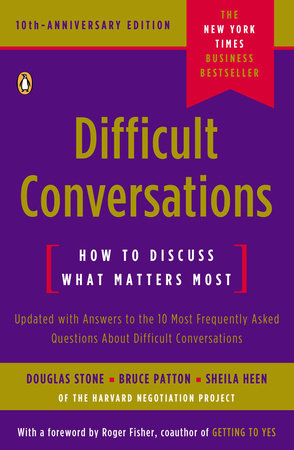Upcoming Events
IBA-VIAC CDRC
Mediation
and Negotiation
Competition
|
|
|
|
When you study languages, or gain fluency in more than one, at some point you realise that each language has its own terms that are not translatable. It is about the way language thinks for us, and in different languages or cultures this varies.
Take the English word "sophisticated." I am bilingual in English and German, and I often work as a translator or interpreter, but I have never found an easy one-to-one translation of this word into Ger

man, no matter what the context. If you look in a dictionary you will find a long list of synonyms for this, and would need to take your pick to suit the context. Often it is easier to translate this one word with two or three words in German.
The other way round there is a great German word: "schillernd", which can mean "gleaming," "iridescent", "shimmering" and much more, but is not usually used to describe optical or physical impressions and is instead a word denoting the use of language itself, as in an "iridescent" word or concept. But of course, "iridescent" won't do the trick.
In mediation training in Germany the word Haltung is a key term. And it is another of those words that contains much more than any translation can do justice do.
Haltung
is the way you hold yourself. Physically. The way you stand, sit, walk. Your body language.
Haltung
is your approach to something. Your methods, the way you do things.
Haltung
is your frame of mind or attitude.
Haltung
is the way you look at yourself, at relationships, at other people.
Haltung
is your focus.
Haltung
is part of your view of life in general.
Haltung is the view you have of your own role in your profession.
Haltung
contains values, the things that matter to you.
All of which matters so much in mediation. What is my approach to mediation, to clients in mediation? Do I call them clients - is that part of my Haltung, or do I have another word for the people I work with? Why am I here with these people? What am I saying about myself? Am I curious? Am I empathetic? Am I there to give advice? Am I here to close a deal? Are there limits to what I can offer? What are my strengths and what are my weaknesses in mediation? What do I do when I make mistakes? In communication? In relationships? In mediation?
This is so much more about Haltung than attitude (a word which sometimes can even have a negative after-taste in English). It is a practical philosophy, or a philosophy of practice. But philosophy is too intellectual a word for it. Haltung contains vision, wisdom, self-reflection, self-criticism, and concern for others. I reckon that being inquisitive about your own Haltung is essential to all forms of coaching and consultancy, and mediation in particular.
So here are just a few of the dictionary synonyms you will find: bearing, stance, attitude, poise,
Mediation training will define and work on the basic mediator traits: neutrality (or multi-partiality), responsibility for process rather than content, empathy, and probably a few more. But these remain very much text-book driven or just learned unless each mediator turns them into his or her own personal claims through reflective experience. Working on Haltung takes these ideas much further and is a never-finished process of learning about your own personal mediator . . . personal mediator what? Haltung of course
conduct, posture, position, behaviour, demeanour, carriage, morale, stand.
Click Here to read original article on Kluwer Mediation Blog
|
Seven Tips for a Winning Mediation Opening Statement
- Scott J. Silverman
|
Excerpted from the full article linked below
1. Do Not Waive Your Mediation Opening Statement
A trend is developing on the West Coast to waive mediation opening statements and go directly into caucus. In my opinion, this is a mistake.
An opening statement gives you the rare opportunity to speak directly to the other party and present your position without the filter of the other attorney or the mediator.

2. Be Conciliatory
Always remember that you are in a mediation to try to settle your dispute. There is nothing wrong with presenting your position with vigor and emphasizing its strength, but be careful how you address an opponent's position. You can disagree with an opposing side, but you should be careful to do so without denigrating the party or their position.
3. Direct Your Comments to the Opposing Party, Not the Lawyer
When making an opening statement during a mediation, your primary audience should be the party, not the party's lawyer. The odds of your convincing the other lawyer (who has likely been telling their client for over the past three years that their case is highly prosecutable/defensible) that your side will prevail and they will lose are probably slim to none.
During the opening statement, you should focus on trying to create rapport with the opposing client, thereby effectively bypassing their lawyer's filter. The mediation is the only opportunity to do this. Creating doubt in the other party regarding their case should enhance their flexibility.
4. Show Your Hand
During mediations, it is common for lawyers to refrain from presenting all of the harmful evidence against the opposing side. They usually want to retain a trump card or ace up their sleeve for later use.
Since almost all cases never make it to trial, a lawyer should strongly consider presenting all the evidence during the opening statement. After all, if it is so damning, one would expect the opposing side to capitulate at once. If so, why hold back? In my experience, the evidence is usually not as devastating as the holder of the information may think.
5. Prepare an Effective PowerPoint Presentation
Nothing captures the attention of a group more than a video presentation. Who doesn't like to sit in a darkened room and watch a movie? However, there are good presentations and not-so-good presentations.
6. Present Helpful Jury Instructions
If you peruse the standard instructions before the mediation, be prepared to present them to the opposition (and possibly incorporate them into a PowerPoint presentation). Present your opening and use the instructions as a checklist to show why you have a prima facie claim or defense.
This can be effective, especially if one party is hanging onto Smith v. Jones as their savior case.
7. Be Mindful of Time
Today, everyone's attention span seems to be abbreviated.
Be mindful of your audience. If you are a strong presenter with a modulating voice who likes to walk around the room while changing PowerPoint slides, have at it. However, if you are not, hit your high points and move on.
Always remember that the mediation opening statement is about convincing the opposing party that you have the better case. You can achieve that goal only if they listen to you. Use your time wisely and efficiently
|
|
|
|
We attempt or avoid difficult conversations every day-whether dealing with an underperforming employee, disagreeing with a spouse, or negotiating with a client. From the Harvard Negotiation Project, the organization
 that brought you Getting to Yes, Difficult Conversations provides a step-by-step approach to having th
ose tough conversations with less stress and more success. you'll learn how to:
that brought you Getting to Yes, Difficult Conversations provides a step-by-step approach to having th
ose tough conversations with less stress and more success. you'll learn how to:
· Decipher the underlying structure of every difficult conversation
· Start a conversation without defensiveness
· Listen for the meaning of what is not said
· Stay balanced in the face of attacks and accusations
· Move from emotion to productive problem solving
PRAISE
"Does this book deliver on its promise of an effective way through sticky situations, whether 'with your babysitter or your biggest client'? It does."
-The New York Times
"These talented communicators blend a daunting array of disciplines into highly readable and practical advice."
-Booklist
"I'm on my third reading. Half the pages are dog-eared. This is a mind-bogglingly powerful book. For life."
-Tom Peters
"A user-friendly guide to mastering the talks we dread . . . a keeper."
-Fast Company
"Emotional intelligence applied to life's toughest moments."
-Daniel Goleman, bestselling author of Working with Emotional Intelligence
Click Here for Link to Book
|
|
|
The International Association of Mediators conference in Edinburgh last month provided a great opportunity to reflect on the lessons learned from the application of a principled negotiation approach, as set out in 'Getting to Yes'. The conference benefited from the experience of over a hundred leading mediators from around twenty countries, along with policy makers and others who had put theory into practice. It also featured a major contribution from William Ury (one of the authors of the seminal work) who addressed delegates, Scotland's First Minister and members of the public in the Scottish Parliament.

This opportunity to reflect led me to try and compile a 'desert island discs' selection of some of the greatest hits from this growing body of work. For those unfamiliar with the format it involves choosing eight records you would rescue if shipwrecked on a desert island. The idea is that you are marooned there on your own, so William Ury's latest book 'Getting to yes with yourself' would probably be essential reading! My eight 'discs' would include:
- Go to the balcony - keep your eye on the bigger picture/prize - remain calm, find time to think
- Listen carefully - to what's said and not said - try to empathise - see the world as a friendly place
- Get into their shoes - try to understand things from different perspectives - who are the constituencies outside the negotiation - don't short circuit the understanding stage
- Give to gain - build trust and demonstrate positive intent
- Separate the people from the problem - be respectful, have care for the human dimension (what's going in lives beyond the negotiation) - think about how physical space can influence mood
- Build a golden bridge that can attract - write your negotiation partner's victory speech - reframe to attract or change perspective - acknowledge other's perspectives and provide reassurance to help engagement - consider who might best deliver messages or make offers
- Develop your BATNA - don't be a pushover - be prepared to say no positively if required - be forgiving
- Look for positive sum options and ideas that meet needs and interests of all parties and wider constituencies - have regard to real and perceived fairness
While on the musical theme, the conference dinner involved a great contribution from Scottish jazz musicians Tom and Phil Bancroft. They reminded me of the value of improvisation when mediating to help parties get to yes. The beauty of the mediation process is that it has the flexibility to allow this improvisation, while providing a tune to return to should you begin to lose your way!
|
The Next Frontier of Mediation: Mediating E-Discovery Issues
|
IN BRIEF
- The rapid expansion of the volume of electronic data in our society exacerbates the burdensome cost of litigation related to e-discovery.
- More parties are turning to mediation to resolve e-discovery disputes.
- Who should participate in e-discovery mediation and how must practitioners prepare for the mediation?
Selected Excerpts from Article:

In the e-discovery arena, mediation can be used either to create a mediated e-discovery plan or to resolve underlying disputes regarding electronically stored information. A skilled mediator who is knowledgeable about e-discovery can facilitate the negotiation and resolution of complicated e-discovery issues without judicial intervention. Further, by eliminating acrimonious discovery battles, mediating e-discovery disputes can also improve the prospect of settlement of the underlying litigation.
Who Should Participate? The success of any mediation depends upon the participation of those persons whose input or consent is needed to reach an agreement. This is certainly true of mediations of e-discovery disputes. In addition to the decision makers for the respective parties and litigation counsel, e-discovery mediations should include IT personnel or other technical consultants who have knowledge of the parties' electronically stored information systems. The participation of IT personnel and/or IT consultants who are familiar with the litigants' electronic systems and capabilities is key to successful e-discovery mediation.
Preparation for e-Discovery Mediation. Electronic information can take many forms, including active data, inactive data, metadata, deleted data, ghost data, legacy data, archived data, and back-up data. In advance of e-discovery mediation, it is imperative that counsel becomes familiar with the type of information stored and how it is stored, preserved, retrieved, and produced, as well as the cost of producing it. In addition, counsel should become familiar with the inventory of storage devices used by the client, the location and ownership of those devices, the client's retention policies, and any automatic deletion procedures that may need suspending. Counsel should also become familiar with the client's data mapping and systems mapping.
The outcome of e-discovery mediation, e.g., an agreed e-discovery plan or an agreement resolving objections to propounded discovery requests, should be reduced to writing and signed by all parties and counsel according to the appropriate rules governing mediation in the jurisdiction of the litigation.
E-discovery mediation can provide litigants with a confidential venue to efficiently manage the discovery of electronically stored information. Mediation can help parties control e-discovery costs, maintain confidentiality, and avoid potential adverse results, such as the imposition of sanctions. Although mediation will not eliminate all e-discovery disputes, it is a tool to reduce or eliminate e-discovery motion practice that should not be overlooked.
Read Full Article on Business Law Today Here
|
|
|
In an effort to recognize the specialization in the ADR community, we are creating 3 separate newsletters broadly covering these areas: Mediation - Arbitration - International ADR.
A newsletter focused in one of those areas will be sent out bi-monthly. In order for you to subscribe to as many types of newsletters that fit your particular practice/interests, please click on the Update Profile/Email Address link at the bottom of this email. From there you will be able to select which newsletters you wish to receive or if you would like to opt out all together.
Thank you for reading my newsletter, and as always, if you have any questions on any of the articles listed, do not hesitate to contact me.
Sincerely,
Tom Valenti
Thomas P. Valenti, P.C.
300 N. LaSalle St., Suite 4925
Chicago, IL 60654-3406
T: 312-803-0472
F: 888-667-2485
|
|
|